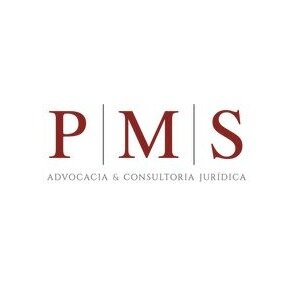Best Financial Services Regulation Lawyers in Porto
Share your needs with us, get contacted by law firms.
Free. Takes 2 min.
List of the best lawyers in Porto, Portugal
About Financial Services Regulation Law in Porto, Portugal
Financial Services Regulation in Porto, Portugal, is part of a broader framework that governs the financial industry across the country. The regulations are designed to ensure market integrity, protect consumers, and promote financial stability. In Porto, as in the rest of Portugal, these laws are aligned with European Union directives and regulations, given Portugal's EU membership. This regulatory framework covers a wide range of financial activities, including banking, insurance, securities, and asset management. The local regulatory authority, the Bank of Portugal, along with the Portuguese Securities Market Commission (CMVM), plays a crucial role in overseeing compliance with these regulations.
Why You May Need a Lawyer
Individuals and businesses in Porto may require legal assistance in financial services regulation for several reasons. Here are some common situations:
- Setting up or running a financial institution: Navigating the complexities of obtaining necessary licenses and registrations.
- Compliance issues: Ensuring ongoing compliance with regulatory requirements to avoid penalties or sanctions.
- Disputes or enforcement actions: Handling allegations of regulatory breaches or defending against enforcement actions by regulatory bodies.
- Consumer protection issues: Advising on practices that protect consumer rights and prevent unfair treatment in financial services.
- Cross-border financial transactions: Legal advice on international financial services and compliance with both local and EU regulations.
Local Laws Overview
The financial regulatory framework in Porto, and Portugal at large, encompasses several key aspects:
- Prudential Regulation: This focuses on the stability and soundness of financial institutions to safeguard the system against economic shocks.
- Conduct Regulation: It ensures that financial institutions adhere to fair practices, transparency, and integrity in their dealings with clients.
- Anti-Money Laundering: Strict guidelines are in place to prevent money laundering and terrorism financing, requiring detailed customer due diligence, transaction monitoring, and reporting of suspicious activities.
- Data Protection: Compliance with the General Data Protection Regulation (GDPR) is crucial, impacting how financial institutions handle personal data.
- Investor Protection: Laws are designed to protect investors, particularly retail investors, by ensuring clear and fair communication and secure investment products.
Frequently Asked Questions
What is the role of the Bank of Portugal in financial regulation?
The Bank of Portugal regulates the banking sector, ensuring financial stability and promoting sound banking practices.
How does the CMVM influence financial services regulation?
The CMVM oversees the securities market, ensuring transparency, investor protection, and fair market practices.
What licenses are required to operate a financial services firm in Porto?
Licenses depend on the type of service offered, such as banking, insurance, or investment services, each with specific regulatory requirements.
Are there specific compliance requirements for fintech companies?
Yes, fintech companies must comply with both general and sector-specific regulations, including data protection, anti-money laundering, and consumer protection laws.
How are financial consumer rights protected in Portugal?
Laws ensure that financial services are provided transparently, fairly, and without deception, with institutions required to resolve complaints effectively.
What are the penalties for non-compliance with financial regulations?
Penalties can include fines, revocation of licenses, and in severe cases, criminal charges against responsible individuals.
How does EU legislation impact financial regulation in Porto?
EU directives and regulations are implemented locally, ensuring that Portugal's laws are harmonized with broader EU standards.
Is there a regulatory sandbox available for testing new financial products?
Portugal has frameworks in place to allow innovative financial services and products to be tested in a controlled environment, promoting innovation while monitoring potential risks.
Can I lodge a complaint against a financial service provider?
Yes, complaints can be lodged with the provider directly, or escalated to regulatory bodies like the Bank of Portugal and the CMVM.
What steps are involved in resolving a financial dispute?
Resolution typically starts with mediation and negotiation, with arbitration or litigation as last resorts depending on the dispute's complexity and context.
Additional Resources
For more information or assistance with financial services regulation, consider the following resources:
- Bank of Portugal - Provides guidance and oversight for banking activities.
- CMVM (Portuguese Securities Market Commission) - Offers resources and oversight for securities markets.
- Portuguese Association of Banks - A useful platform for industry insights and best practices.
- Consumer Protection Commission - Addresses grievances and ensures consumer rights are protected.
Next Steps
If you need legal assistance in financial services regulation in Porto, consider the following steps:
- Research and contact specialized law firms that have experience in financial services regulation.
- Prepare all relevant documentation and information about your situation or business needs.
- Consider initial consultations to understand the scope of legal assistance required and potential costs.
- Stay informed about ongoing changes in financial regulations that may affect your operations or interests.
Lawzana helps you find the best lawyers and law firms in Porto through a curated and pre-screened list of qualified legal professionals. Our platform offers rankings and detailed profiles of attorneys and law firms, allowing you to compare based on practice areas, including Financial Services Regulation, experience, and client feedback.
Each profile includes a description of the firm's areas of practice, client reviews, team members and partners, year of establishment, spoken languages, office locations, contact information, social media presence, and any published articles or resources. Most firms on our platform speak English and are experienced in both local and international legal matters.
Get a quote from top-rated law firms in Porto, Portugal — quickly, securely, and without unnecessary hassle.
Disclaimer:
The information provided on this page is for general informational purposes only and does not constitute legal advice. While we strive to ensure the accuracy and relevance of the content, legal information may change over time, and interpretations of the law can vary. You should always consult with a qualified legal professional for advice specific to your situation.
We disclaim all liability for actions taken or not taken based on the content of this page. If you believe any information is incorrect or outdated, please contact us, and we will review and update it where appropriate.

















